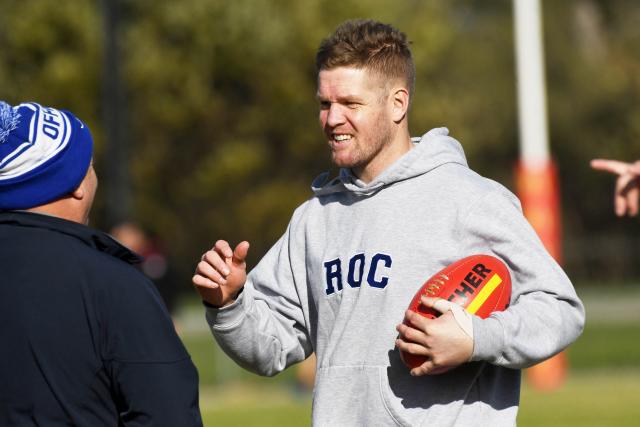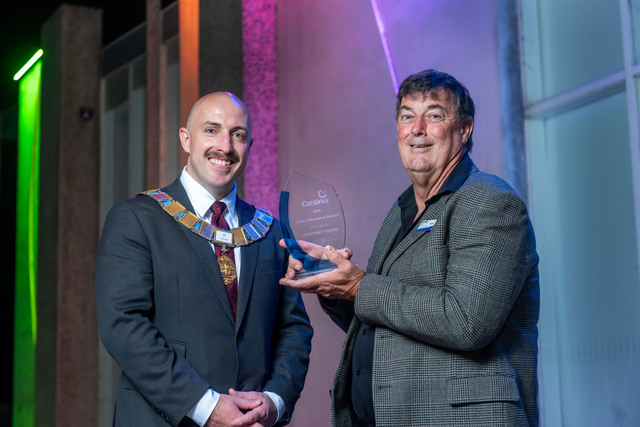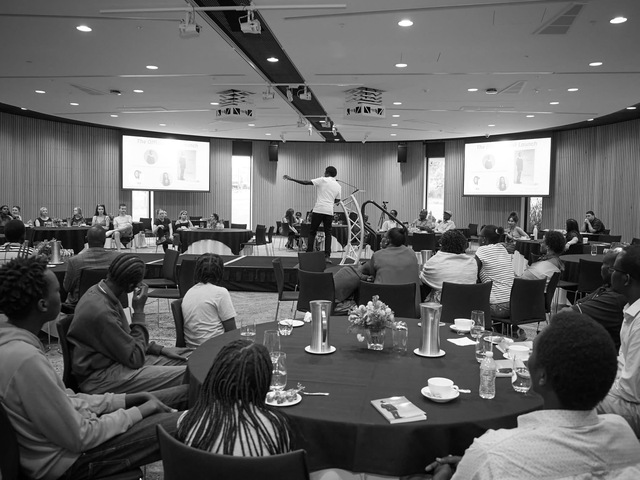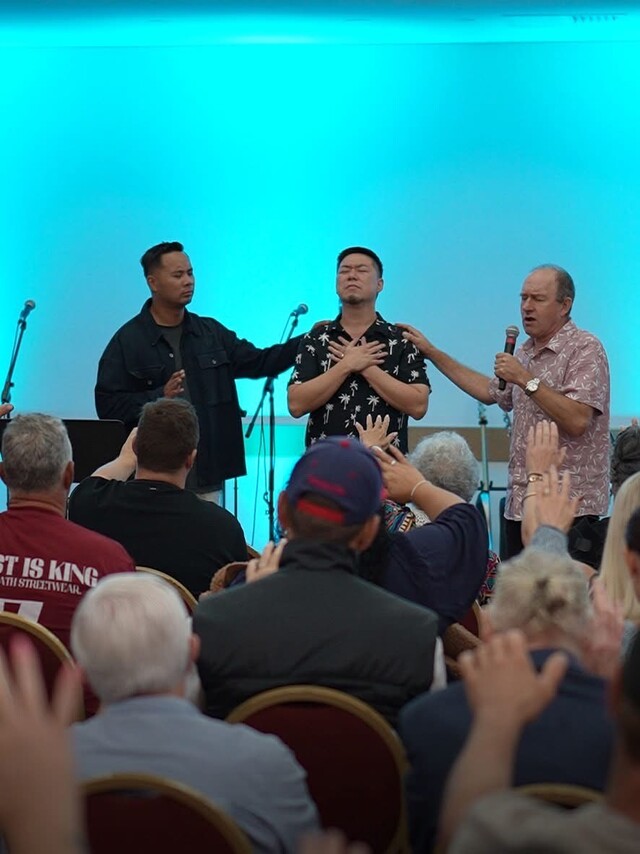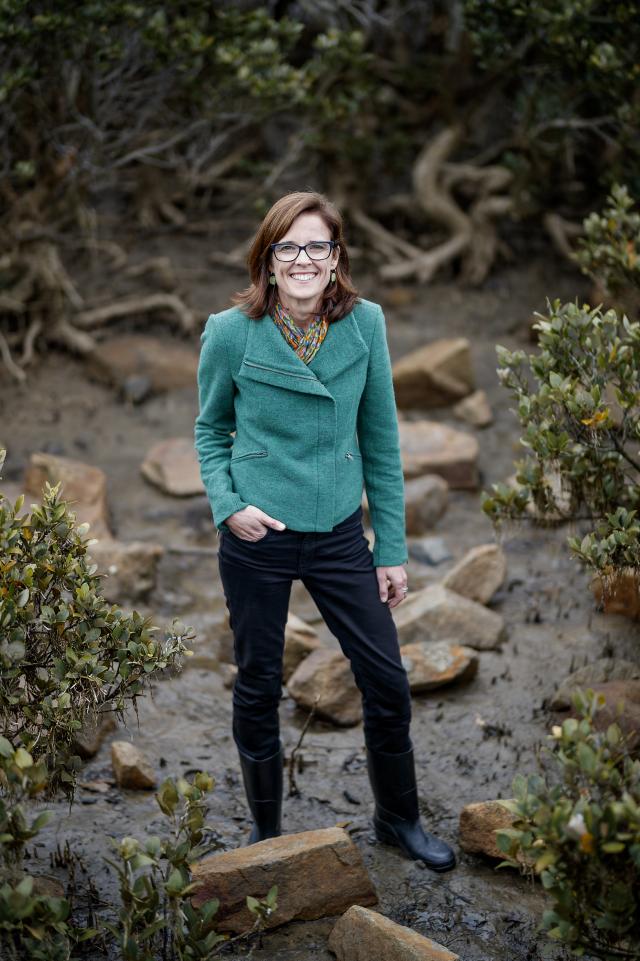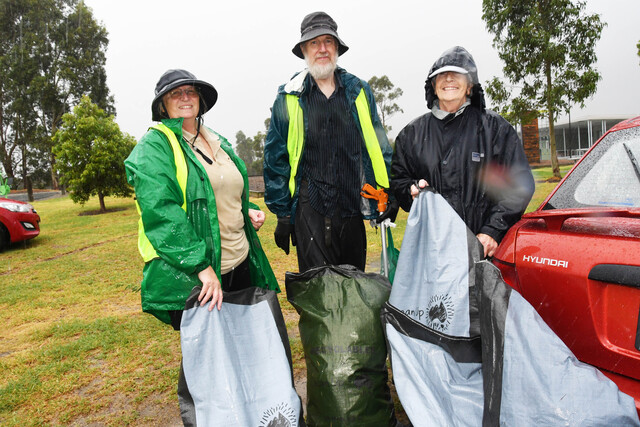The mercury nudged 40 degrees and winds reached close to 50 kilometres per hour across Melbourne on Saturday 18 March as suburban footballers took to the field for pre-season practice matches in unfamiliar and unfathomable conditions.
A new-look Officer was beginning a new era after a tumultuous 2022, and headed down the highway to Cora Lynn to tackle Outer East foes Mt Evelyn.
Opinions are divided over the merit of practice games, but this one was more momentous than most for one member of the Officer playing group, pulling on the blue and white stripes for the first time after a decorated career at Cranbourne and Cora Lynn.
“I reckon I got two or three touches and kicked one goal, and I left the rooms feeling like I’d just won the grand final,” Troy Tharle said of the hit-out.
“It was that euphoria of, ‘s***, I’m still out there’.
“It genuinely made me excited, like, I’ve done it, and I can still do it.”
It was the first time he had taken to the field since making the heartbreaking decision to step-away from football in 2021 after suffering his twelfth concussion in a match against Pakenham while playing for Cranbourne, having worn an errant blow to the head from his opposing ruckman.
It was his second concussion of the season, and enough to make the key forward consider the place that football held in his priorities.
As Melbourne emerged from lockdown at the end of 2021 and football clubs could look to the future with certainty after a torrid two years, connections at Officer, from his time at the Eagles, saw Tharle join the Kangaroos to work alongside 2011 premiership coach Doug Koop as an assistant and be amongst close mates including the returning Tommy Marks.
By midway through May, however, circumstances had changed, as Tharle found himself in the hot seat as a result of Koop’s departure.
“I basically went there to learn the ins and outs of coaching and what not, and come round four ‘Koopy’ was gone and I was in the box seat with no idea.
“We’d lost to Woori Yallock the week before and the club had made the decision to move ‘Koopy’ on, and I was in-charge after round four with four weeks of coaching experience and not knowing what the hell I was doing.”
What came next for the club was particularly bleak; the Kangaroos won a solitary game for the remainder of the season while suffering an average losing margin of 99 points and was relegated to Outer East’s Division One.
But from every dark cloud emerges a silver lining, and the heat of the job lit the flame in the belly of Tharle.
“The first couple of weeks when I was finding my feet was probably the most enjoyable part of last year, when you start to understand what the players are thinking and you see a different side of footy, after playing for so long and moving to coaching,” he said.
“The results on-field weren’t in our favour, but at the same time, what made it really enjoyable was having a really good mate in Anthony Bernardo who was there.
“We both gelled really well with each other and it made it really enjoyable, where we could have a bit of a laugh at some situations on game-day and try to carry that style, where footy’s meant to be fun.
“Results weren’t great but that wasn’t our objective.
“We came in and said ‘let’s make this a really good place to be around, and then for whoever takes over the following year, let’s keep this list that we’ve got and build on that’”.
Results that “weren’t great” included a two week period in June that saw the Kangaroos lose by 129 points to Monbulk in round eight and then by 228 points to Narre Warren in round nine.
For Tharle, the adversity got the brain ticking over, and he pinpoints the loss against Narre Warren as the turning point.
“For some people that would deter you from footy but, for me, I was a part of those heavy losses in my early days at Cranbourne and I felt sorry for the boys that were involved that day, and I felt like ‘I’ve got to be able to do more’,” he said.
“Throughout the year I was 120 kilograms thinking that I could run-around, and then seeing the faces on the boys after the 230-point loss was what really kick-started that burning desire to play footy again.
“I knew I had something left in me and left it to the last round before telling everyone that I was going to play again, and get all the medical stuff done, which happened in October.”
Unbeknown to his wife, Tharle hatched a plan to return to the field of play and resume his decorated career.
“We (Tharle and his GP) did two weeks of testing, I had scans on my brain to make sure things were still functioning and there was no risk of short-term damage to the brain,” Tharle recalled.
“We sat there and nutted-out all the minor and severe ones and came to the conclusion that it’s my decision from here.
“We spoke about what some of the long-term effects could be and some of the risks in playing again and by the end of it, it was a pretty comfortable experience.
“It was a bit stressful, but at the same time the doctors made it real comfortable and they wanted to help me make the best possible decision that I could, which was to return to the field.”
Next came the difficult conversations with loved ones.
“It took me a couple of weeks to build up the courage to speak to her (wife Sarah) about it,” he said.
“I took my mind off that process by going and checking all the boxes with doctors in the meantime, and when I finally actually spoke to her about it, I had all the clearances ready to go to show her that I was ready to return to the field.”
Initial trepidation from Sarah vanished and evolved into support, given the role football had played in Tharle’s life to date.
Encouragement to go for a run, or not have that extra beer, or clean up his diet, saw him drop 22 kilograms and return to his playing weight over the preseason as Officer set about on a new direction under the leadership of respected local football icon Daniel Charles and with a bevy of recruits at his disposal.
Twelve months away from the cut and thrust of on-field collisions had seen Tharle’s appreciation for the sport grow, and given the brain crucial recovery time.
But with concussion being an impact injury, there’s always going to be an element of risk, and the ‘what ifs?’ linger in the back of Tharle’s mind every time he takes the field.
Sydney Swan Patrick McCartin’s incredible comeback from a series of concussions has been put on hold, ruled out for the remainder of the AFL season in May after suffering his tenth against Port Adelaide in April in what appeared to be a relatively innocuous incident.
When he announced his retirement in 2021, Tharle revealed he had been diagnosed with depression as a result of the number of head knocks he’d suffered during his 230-game career.
Mitigating those concerns is his management plan and a greater awareness and sensitivity to possible symptoms.
“I think with the concussion issues, you’ve almost got to know your own limitations as well,” he said.
“If you feel like it’s getting a bit too much then you can take a step backwards, but when you are out there, you’re definitely thinking about it.
“If you start looking too much into it, that’s when the paranoia and the backing-out of contests starts, where you do get hurt more often than not.
“I feel sorry for those guys (such as McCartin) but I don’t think about it because I can’t control what happens with them.
“What I can control is how I deal with it and I think I deal with it pretty well.”
A collision in a marking contest resulted in Tharle being knocked-out early in the year, and when he wasn’t feeling right to train on the following Thursday, he made the decision to rule himself out of that week’s contest for his own well-being with full support of family and coaching staff.
That moment aside, returning to football has been significant for Tharle, and he is enjoying playing as much as he ever has.
Coupled with the birth of his first daughter in April, life is looking much brighter than it did two years ago when he was forced to hang up the boots and the beloved blue and gold jumper.
“Being able to come home and see them (his children) smiling and holding them, is probably the best thing in life, being able to remember who your children are and things like that,” Tharle said.
“Outside of footy, I couldn’t ask for anything more.”
It didn’t take long for Tharle to find his feet again once he returned to the arena; in just his second game he kicked five against 2022 Division One runner-up Seville, and has bagged 22 in 11 contests this year.
Alongside Brent Moloney and Mark Seedsman, Officer boast three dynamic, tall marking options that cause headaches for opposing defences.
Moloney has kicked 29 goals from his 12 appearances and Seedsman 37 from his 10, and Officer has won four of the six matches when all three have played in the same side.
Charles was glowing in his assessment of Tharle and what he has brought to not only the side, but the club overall as a senior head in the playing group.
“Not too many sides have got three defenders to control those three blokes,” Charles said of his forward trio.
“Normally one of them gets away, and I think there’s been a few games where Seedo’s been out where Troy’s had to step up and he’s been our focal point in that forward line, and he’s been fantastic for us.
“His teammates love him, his coaches love him, he gives his heart and soul, whether that’s on game day or on the training track. I’m so pleased for him to be back running around doing what he loves doing.”
For Tharle, given the ground he needed to make up to get back to playing this season, he feels that he’s only “just getting started,” despite the season coming to the pointy end.
Officer look likely to qualify for finals and from there, anything could happen.
Beyond 2023, he said he will be dictated by his body, but has no immediate plans to retire for a second time, wanting to maximise the new lease he’s found on life.
“I’ve said to the boys that I’m probably as fit as I’ve been since I was 22,” he said.
“I’d like to think that I’ve got two or three years left in me but time will tell with the body.
“As long as I’m still a required player I’ll keep putting my best foot forward and help the team as best I can.”
Anyone needing help can contact Lifeline on 13 11 14.

